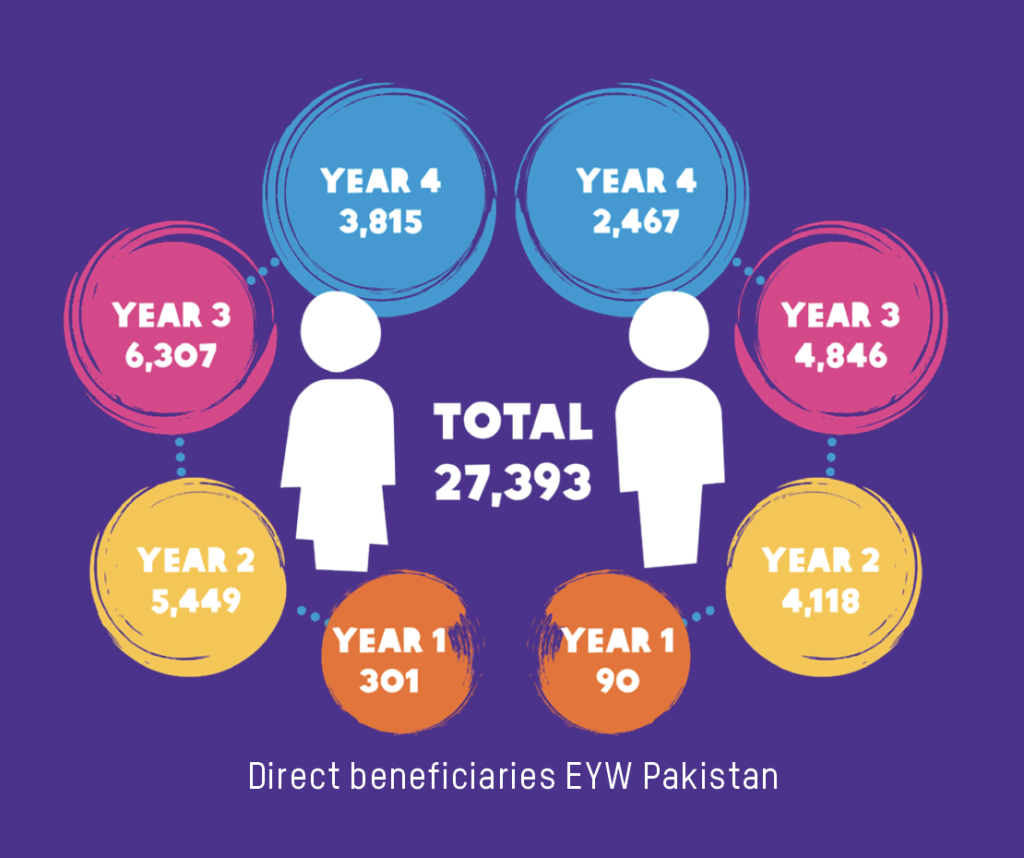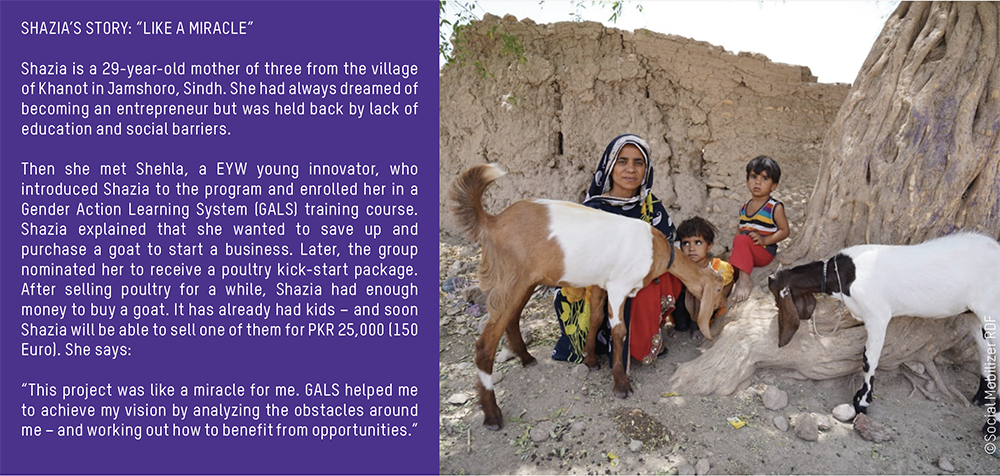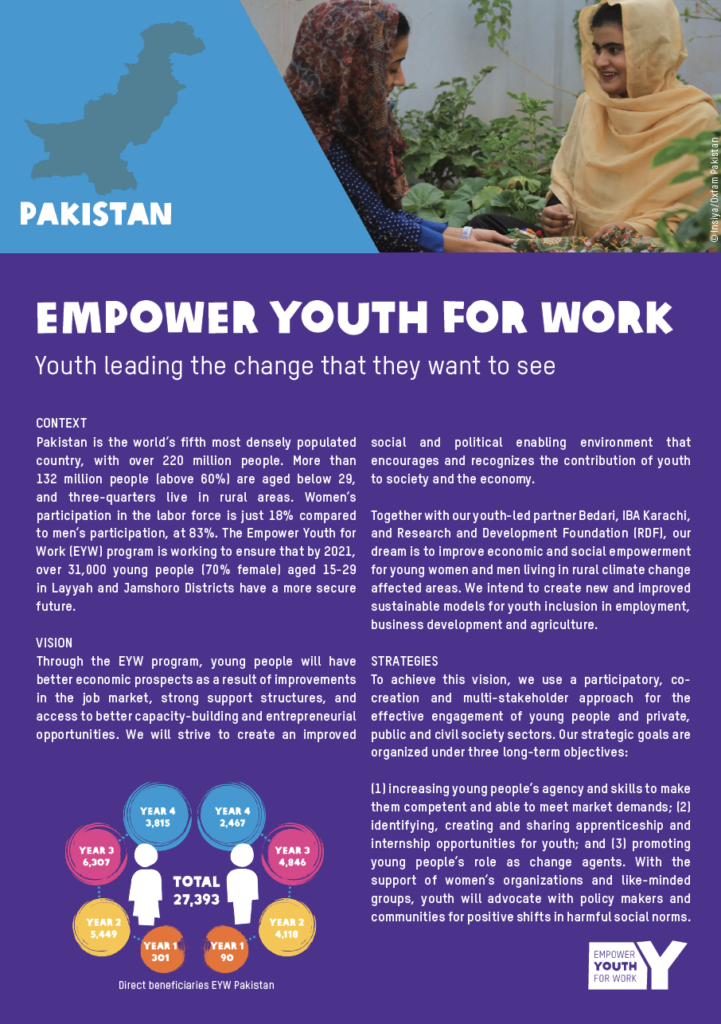Pakistan year 4 overview
In the Empower Youth for Work program in Pakistan in year 4, the development of an online platform enabled young people to learn new skills and find jobs online. Youth were involved in micro-businesses including beekeeping and nursery management, and over 2,500 young people became ‘change makers’, committed to positively influencing their families and communities.
Key achievements - Year 4
In year 4, 250 young leaders trained 4,250 young people (2,719 female, 1,531 male) on life skills, climate-resilient businesses, and the Gender Action Learning System (GALS). As a result, 228 youth (125 female, 103 male) became employed or self-employed, with an increment in women’s employment of 55% as compared to 40% last year.
Young people have strengthened their agency and have organized themselves into an advisory group at the provincial level, which is being run by youth in Punjab and national-level young leaders. The young leaders are taking social actions, helping their communities and claiming civic space.
In year 5, the EYW program will emphasize sustainability and will strengthen a national-level ‘Young Leaders Platform’, connecting this with the Innovation Hub Pakistan, after registering the Hub as a social enterprise.
As a result of the EYW program, youth have access to digital learning solutions in their homes and at the Innovation Hub, and have a pathway to secure relatively decent work online. As a next step, youth and the EYW team will take advantage of an increase in digital jobs nationally and seek to minimize the digital jobs gap between rural and urban youth. 52 SMEs participated in the SME Development Program, part of this group were 65 youth entrepreneurs (17 female, 48 male). The program will now focus on increasing young women’s inclusion and connecting them to wider markets. These SMEs will enhance the ecosystem of micro-business for youth, especially young women.
1 network of elderly women was formed at the village level in Sindh to advocate for the sharing of household care work and addressing the consequences of child marriage and gender-based violence (GBV). Around 5,000 people were reached with messages highlighting the impact of these issues on women.
During year 4, 2,268 youth (1,354 female and 914 male) took part in life skills training and GBV sessions and became ‘change makers’. This means they have committed to take social action to end GBV and child marriage by raising awareness and positively influencing their families and communities. Change makers are supported to take part in activities including awareness sessions, campaigns, companies dialogue, edutainment etc.

Innovation
The EYW program introduced climate-friendly micro-businesses, including honeybee farming and nursery management, where young people are involved at every stage, from training to selling their products in markets. Young people are learning to engage in online jobs, and a complete digital learning platform has been developed in the local language.

Risks and challenges
One of the main challenges in year 4 was disengagement with one of the implementing partners due to strict government monitoring and a vigorous process of re-registration for NGOs. The EYW program responded with a ‘backup’ implementing partner in the shape of consultant organizations which do not have to follow the same process to gain clearance. Secondly, in the last quarter the coronavirus pandemic hit hard and put communities under lockdown, halting key activities.
Year 4 overview in PDF:

